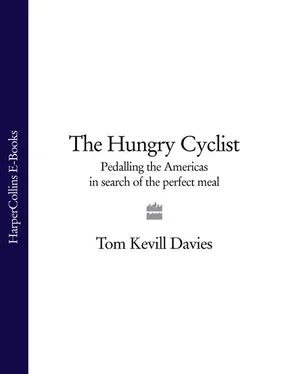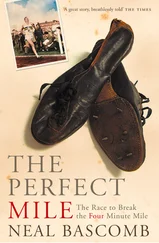The singing, dancing and drumming continued. In the moonlight I walked back to my tent and, untroubled by the usual frenzy of mosquitoes, put my head back on my sleeping bag and enjoyed the cool breeze that washed through this sacred and ancient place. The distant melodic pounding of the central drum continued to swell into the night, but far from being a disturbance, it was as if I was listening to a deep and distant heartbeat, while the haunting wailing of the singers carried into the star-filled sky. No words, no apparent plan, just the natural calling of grown men transfixed, concentrated, and singing as one. Their feelings translated into one true sound that needed no words to describe the sentiments and insights being expressed. Beauty, pride, honour, bravery, respect and the tragedy of the mighty Ojibwa people. This strange, abstract, wordless noise that had so much more meaning, more depth than words could ever convey, lulled me and I slept.
In the morning the pow-wow would pack up. The magnificent wigwams would come down. The traditional costumes would be packed away and the arena dismantled. One hundred and fifty years ago the Ojibwa would have finished their harvest of wild rice and maple syrup and moved west towards the buffalo-filled plains of the Dakotas. In the morning I too would roll up my shiny wigwam, pack a bag of wild rice and begin my journey west towards the Dakotas, the Midwest and cowboy country.
What is life? It is the flash of a firefly in the night. It is the breath of a buffalo in the wintertime. It is the shadow which runs across the grass and loses itself in the sunset.
Black Crow
Serves 4
200g dried pigeon peas (black-eyed peas will do) 100g salt pork (or bacon), chopped into small pieces small onion, chopped 2 garlic cloves, crushed 1 tablespoon olive oil 1 red bell pepper, cored, seeded and chopped small 1 green bell pepper, cored, seeded and chopped small 2 tom atoes, chopped 350ml chicken or ham stock 1 tablespoon annatto (achiote) oil 200g long-grain rice salt and freshly ground black pepper to garnish: cilantro (coriander), chopped chillies and limes
1 In a small pot, bring the pigeon peas and 700ml water to the boil. Cover, turn off the heat and allow to stand for 1 hour. Drain the peas,.
2 In a deep pan, sauté the salt pork, onion and garlic in the olive oil for a few minutes.
3 Add both bell peppers, cover and cook over a medium heat until the onion begins to turn transparent.
4 Add the tomato, drained pigeon peas and stock. Simmer, covered, over a low heat for 15 minutes until the peas are almost tender and most of the liquid is absorbed.
5 Stir in the annatto oil, rice, black pepper and 500ml cold water. Return to the boil then simmer, covered, for 15-20 minutes until the liquid is absorbed and the rice is soft and tender.
6 Add salt to taste and mix through a handful of chopped fresh cilantro, some diced chilli and a good squeeze of fresh lime.
Serves 6
bones and tail from 1 beaver 2 large onions, sliced 3 bay leaves 2 large carrots, chopped 4 garlic cloves, chopped salt and freshly ground black pepper to garnish: sprigs of fresh mint
1 First you need to remove the tough skin from the beaver tail. This is done by toasting the tail over an open flame until the scaly skin peels off in one blistered sheet. This will reveal the tasty white meat underneath. Cut the tail meat into chunks.
2 Place the bones and pieces of tail in a large deep pan, cover with water (at least 2 litres), add a teaspoon of salt and bring to the boil. Lower the heat and simmer for 30 minutes, keeping the surface clean with a large spoon.
3 Add the onions, bay leaves, carrots, garlic and 1/2 teaspoon freshly ground black pepper, and keep simmering for a further 30 minutes.
4 With a large spoon, remove the chunks of beaver tail from the pan and leave to drain on a plate. Don’t worry: these will be added back to the soup later. Carefully strain the remaining soup through a sieve into another large pan, being sure to remove any bits of bone. Now continue to boil until the soup reduces to roughly half of its original volume.
5 While the soup is reducing, cut the tail meat into bite-size chunks and add to the soup. Serve hot, making sure everyone gets some chunky bits of beaver in their bowl, and garnish with a few sprigs of fresh mint.
Chapter 2
Rodeo Ga GaCOWBOYS, CRITTERS AND BEAUTY QUEENS IN AMERICA’S MIDWEST
Mamas, don’t let your babies grow up to be cowboys.
Don’t let ’em pick guitars or drive them old trucks.
Let ’em be doctors and lawyers and such.
‘Son, I drove cross-country once. The boredom near killed me.’
Plucking a couple of dollar bills from the pocket of his dishevelled checked shirt and tossing them on to the table as if placing a bet in a Vegas casino, the substantial man sitting in front of me then poured the remainder of his coffee into the mouth I had just witnessed demolish a breakfast large enough to feed a small nation for a month.
‘But good luck to you all the same and God bless.’
He began to leave the diner booth we were sharing. No mean feat for a man of his size, who had to lever himself up on both hands while sliding a few inches sideways. But following three strenuous manoeuvres he was on his feet. He picked up his foam-fronted trucker’s hat, pierced with the colourful feathers of prized fishing flies, and pulled it on to his round balding head.
‘Thank ya, darlin’.’
‘You enjoy your weekend, Pete.’
My eyes followed him through the rain-lashed windows as he did his best to hurry through the torrential downpour, dodging puddles on his way to a large brown and yellow pick-up truck. The engine rumbled into life, the windscreen wipers began their repetitive routine and he rolled out towards the highway. ‘Born to Fish. Forced to Work’ announced the sticker attached to his rear window. He waited for a juggernaut to thunder past, kicking up a violent swirling storm of surface water, rain and wind.
‘What can I get you, darling?’
‘A Hungry Trucker’s Breakfast, please.’
‘And how dy’a want your eggs?’
‘Over easy, please.’
‘Links or bacon?’
‘Bacon, please.’
‘Toast or muffins?’
‘Toast.’
‘What bread would you like?’
‘Rye.’
‘Home fries or regular fries?’
‘Home fries.’
‘Tea or coffee?’
‘Oh coffee, definitely.’
Since leaving the Canadian Great Lakes and following the southern beaches of Lake Superior through Michigan, Wisconsin and Minnesota, I had become good at these small-town American diner exams, and with another multiple choice successfully completed all I had to do was wait for the results, and I really needed a good score. Americans don’t like getting rid of their beloved gas-guzzling vehicles and the previous night, unable to find anywhere else to camp before nightfall, I had slept in a post-apocalyptic automotive graveyard, forced to pitch my tent amidst the rusty broken hulks of neglected station wagons, engine blocks, suspension shocks and other derelict metal innards.
Minnesota’s state bird, the mosquito, had plagued me from dusk until dawn, and it had pissed with rain from the early hours and had no intention of stopping. Soaked through after a soul-destroying ten-mile ride through the wind and rain to where I now sat, this small-town, family-run diner, like all the others that fed me as I moved west across America, was a gift from God. A warm, comfortable, friendly sanctuary where, for a fistful of dollars, a hungry cyclist could take in enough calories to burn for a week. Eggs sunny side up, over easy, poached, boiled or fried. Thick pancakes in tall stacks drenched in maple syrup. Chunky waffles smothered in whipped cream and blueberries. Golden slabs of French toast dusted with icing sugar. Rashers of crispy bacon, sticky cinnamon buns, home fries, French fries, hash browns, English muffins, links of sausages, oats and coffee. American diners know all about breakfast.
Читать дальше












